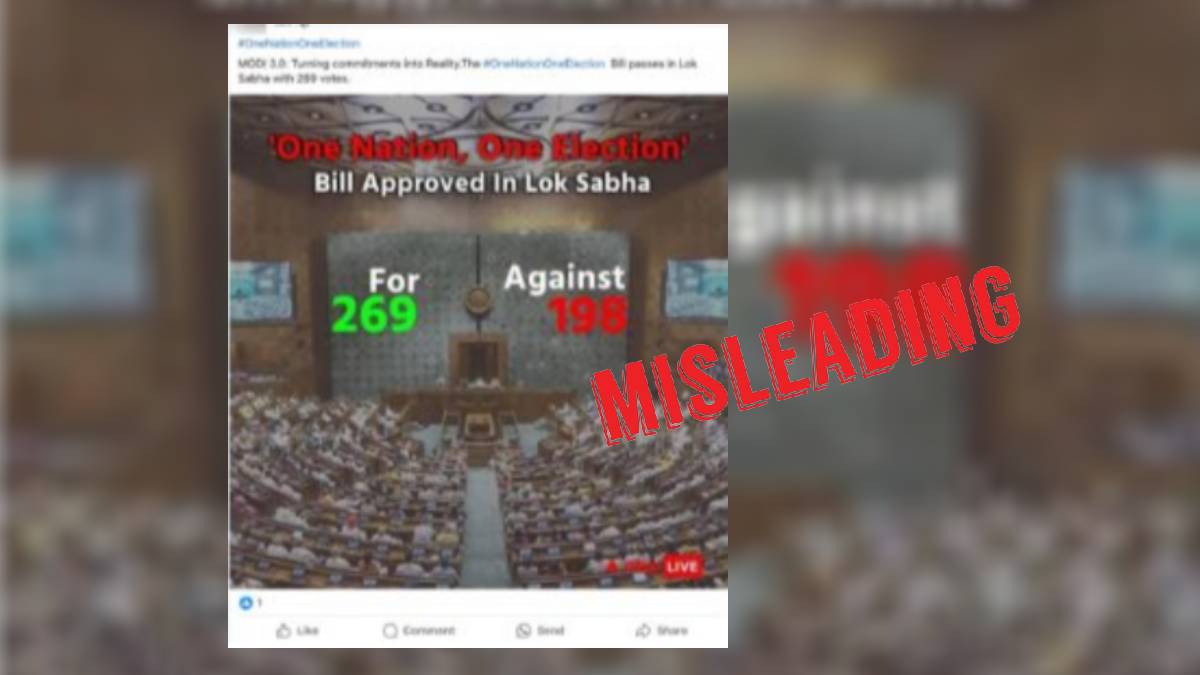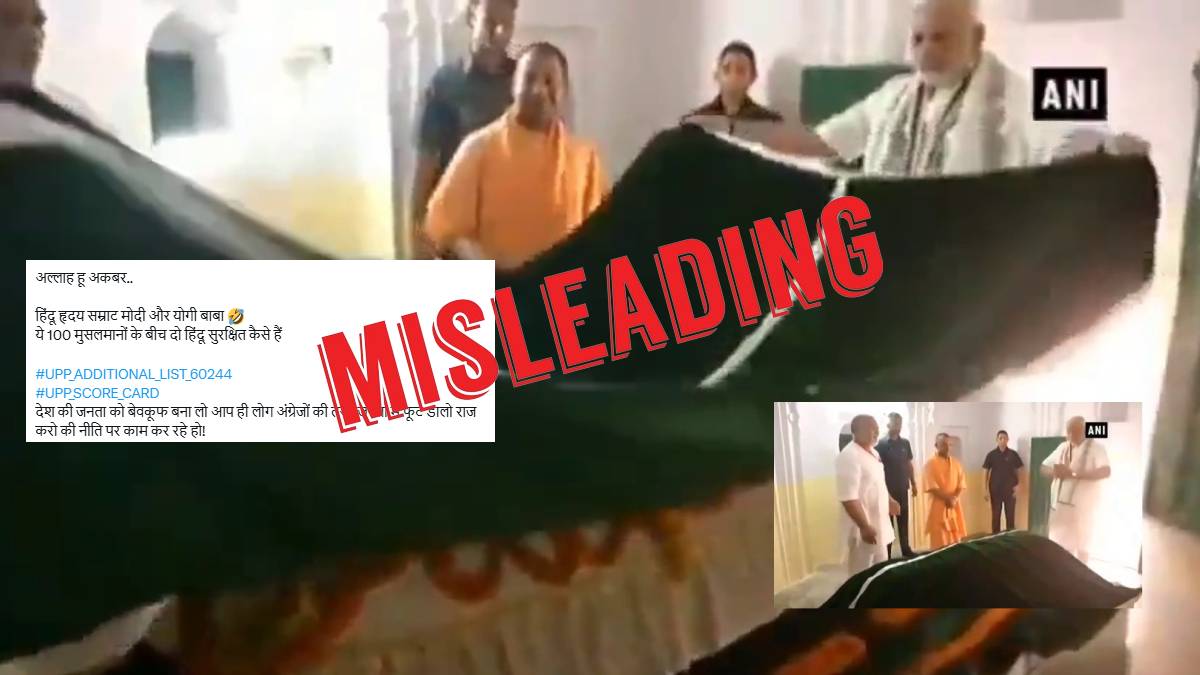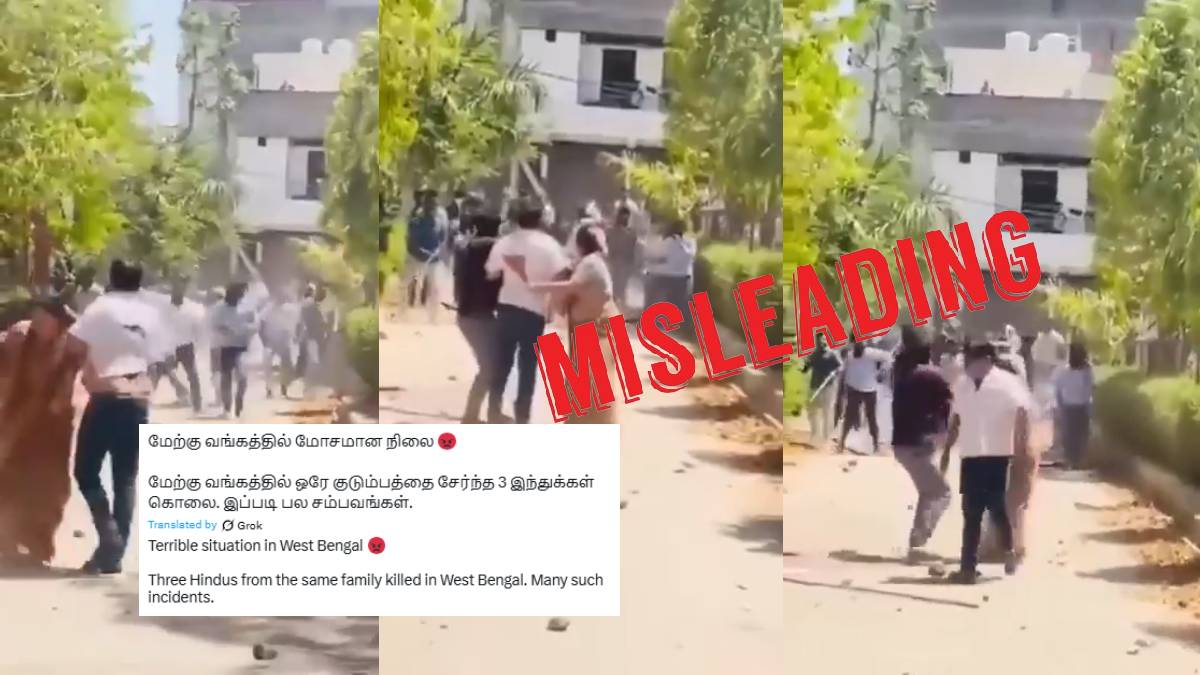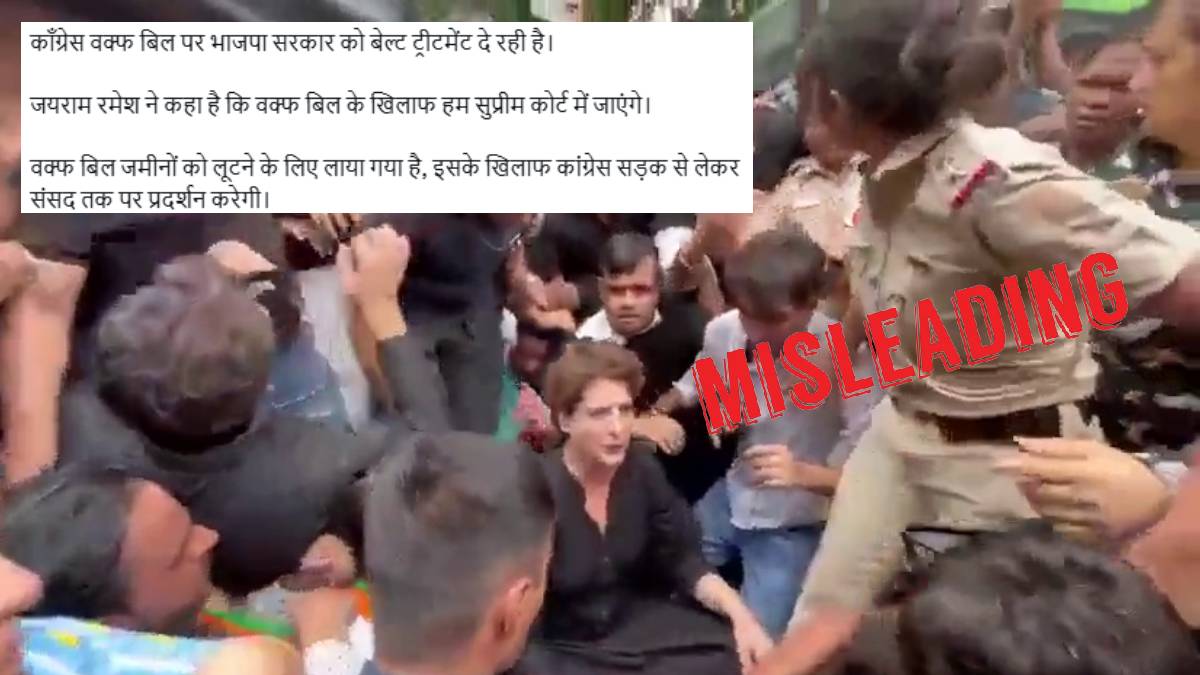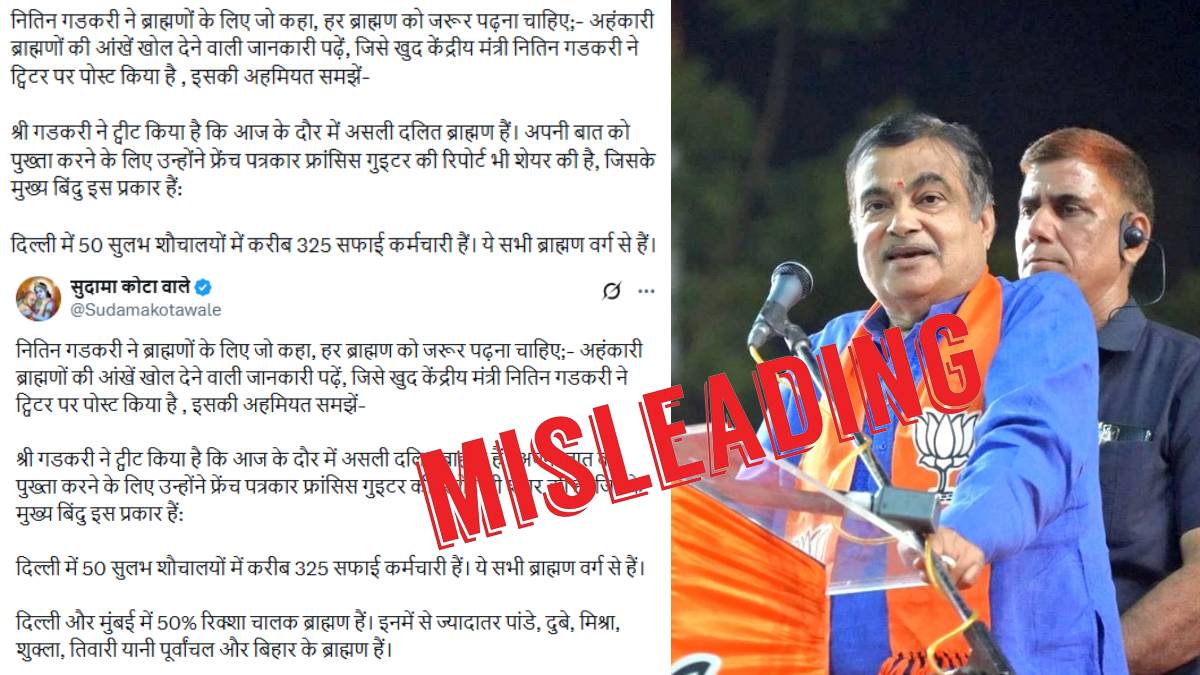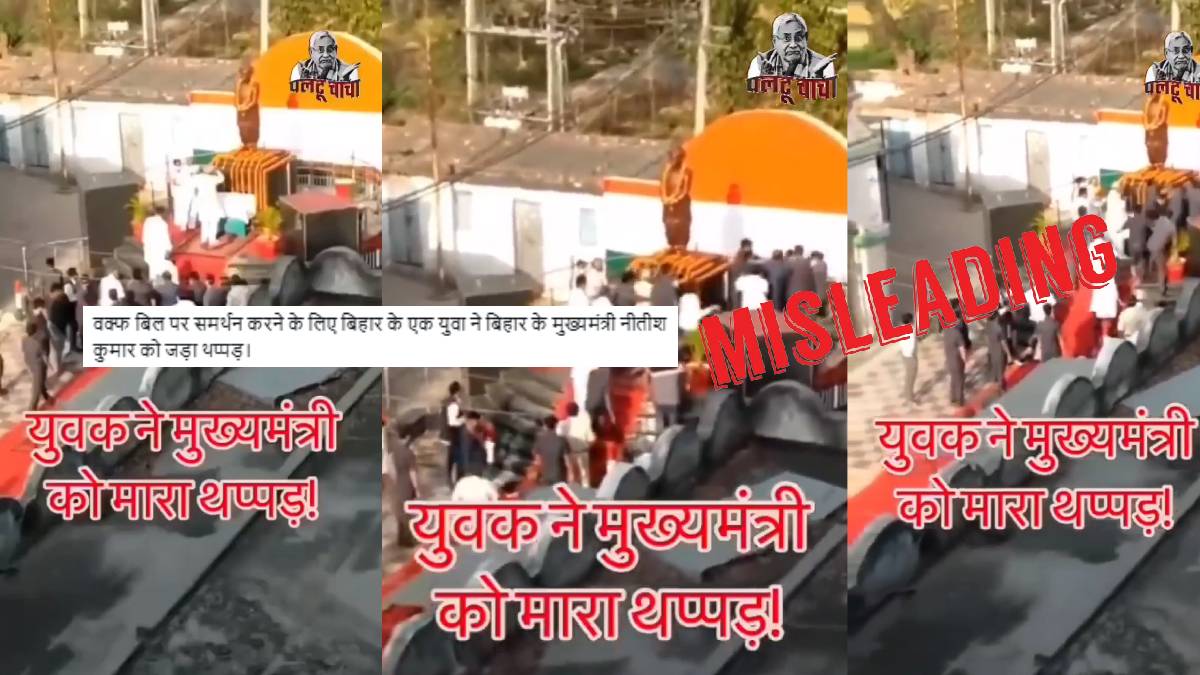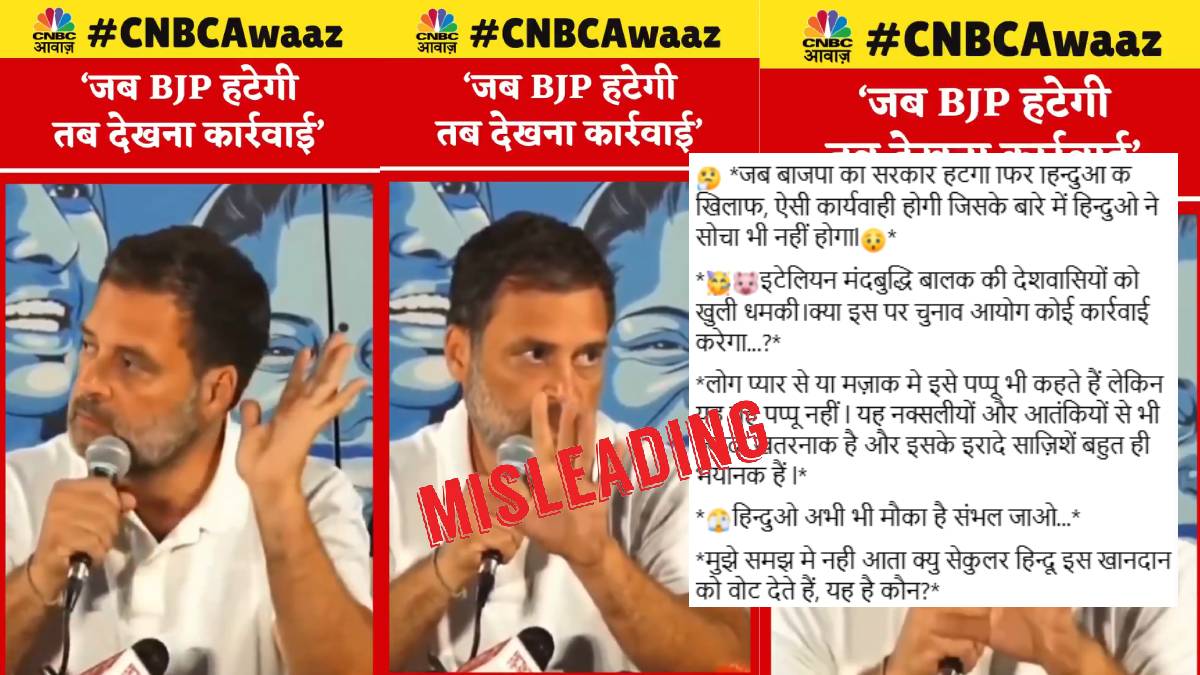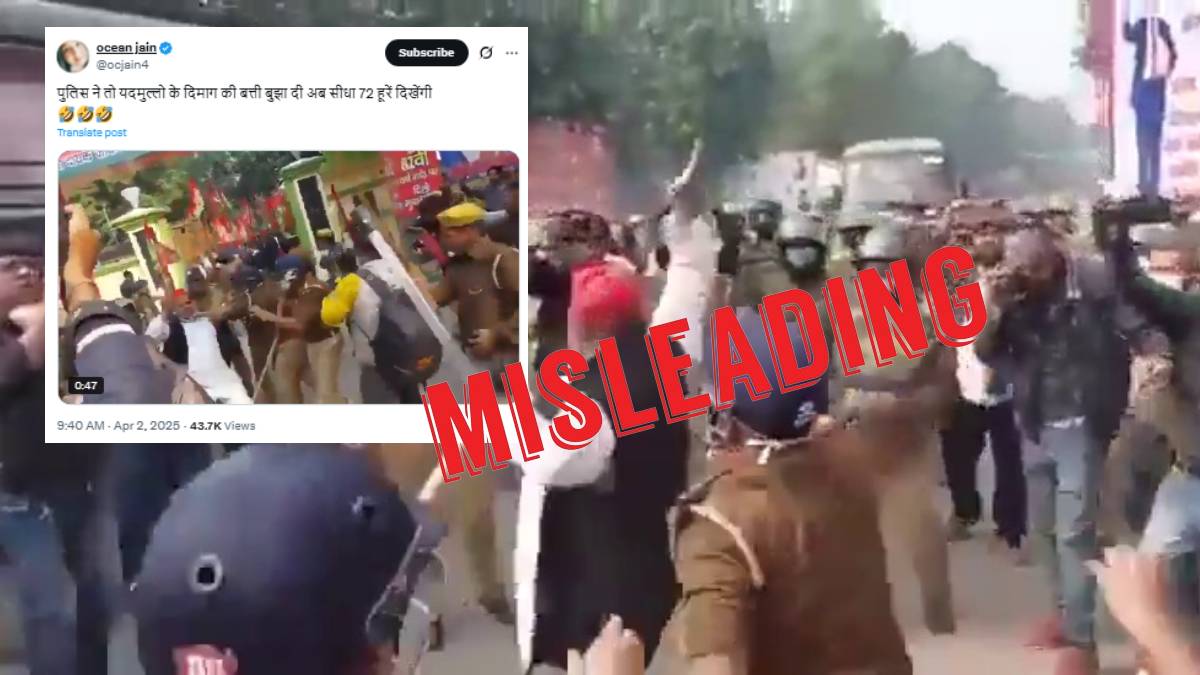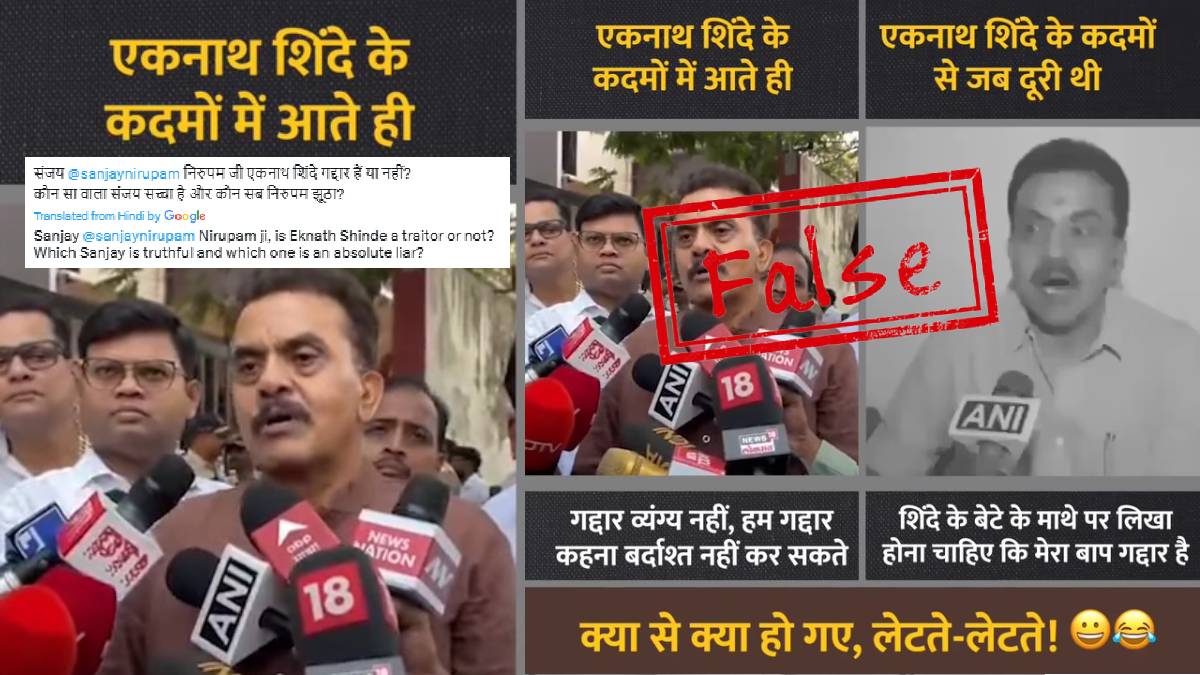Two bills aiming to achieve ‘One Nation, One Election’—’The Constitution 129th Amendment Bill 2024′ and ‘The Union Territories Laws Amendment Bill 2024’—were introduced in the Lok Sabha by the Minister of State (Independent Charge) for Law & Justice and Minister of State for Parliamentary Affairs, Arjun Ram Meghwal, on 17 December 2024. These bills were formally introduced in the Lok Sabha by a simple majority, as required by the rules. In the voting process, 269 MPs voted in favour of introducing the bills, while 198 MPs voted against them (here, here).
Claim:
Amidst the introduction of bill, a graphic from a TV channel showing the vote division related to the introduction of these bills is going viral on social media platforms with the claim that the Lok Sabha has passed the ‘One Nation, One Election’ bill (here, here, here, here, and here). Through this article, let’s fact-check the claim made in the post.

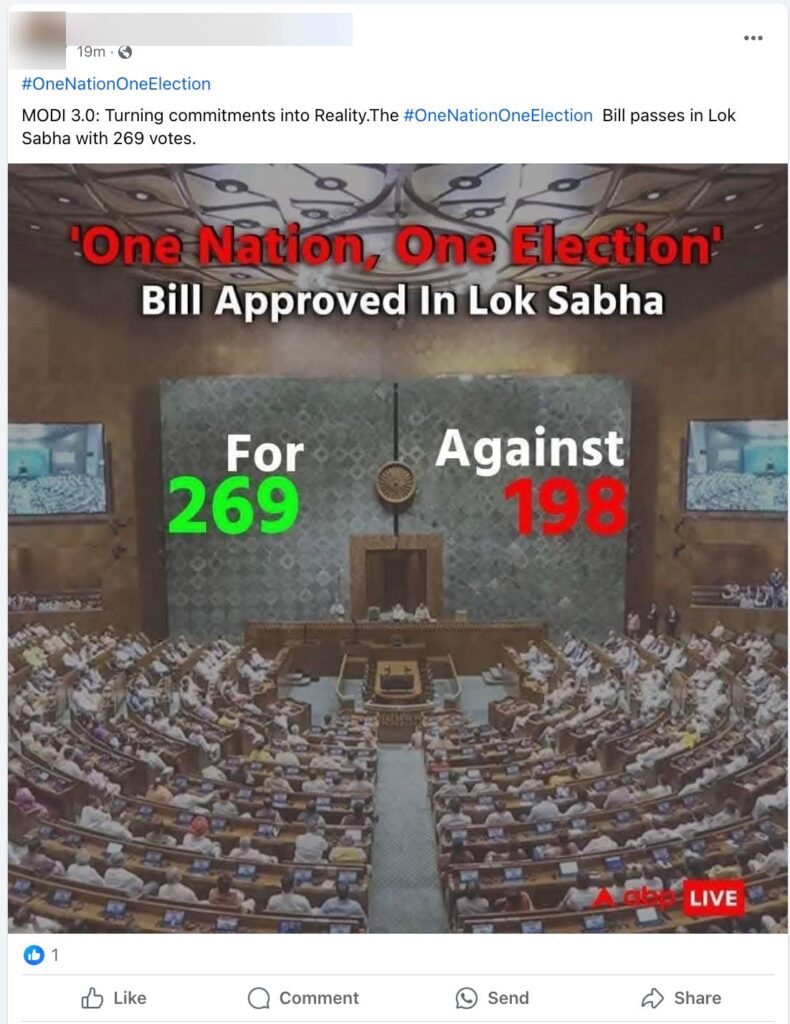
The archived version of this post can be found here.
Investigation:
On 17 December 2024, the Lok Sabha did not pass the bills related to ‘One Nation, One Election’. Instead, the Lok Sabha passed a motion, with a simple majority, to introduce two bills namely ‘The Constitution 129th Amendment Bill 2024‘ and ‘The Union Territories Laws Amendment Bill 2024’ aiming to achieve ‘One Nation, One Election’. The motion was introduced by the Minister of State (I/C) for Law & Justice, Arjun Ram Meghwal.
We also reviewed the parliamentary proceedings (here, here) on 17 December 2024 and found that the motion to introduce two bills, namely ‘The Constitution 129th Amendment Bill 2024’ and ‘The Union Territories Laws Amendment Bill 2024,’ was adopted with a simple majority. 269 MPs voted in favour of the motion to introduce these bills, while 198 MPs voted against them. From all this information, it is clear that the Lok Sabha did not pass the ‘One Nation, One Election’ bill on 17 December 2024. Instead, the Lok Sabha adopted the motion to introduce bills related to One Nation, One Election.

‘The Constitution 129th Amendment Bill 2024’ and ‘The Union Territories Laws Amendment Bill 2024,’ introduced in the Lok Sabha, can be viewed here and here.
It is to be noted that amending the Constitution of India requires a special majority, i.e., at least two-thirds of the members present in the house must vote in favour of such bills in Parliament. However, motions to introduce Constitution Amendment Bills in Parliament can be approved by a simple majority, i.e., more than half of the members present in the house must vote in favour of introducing the bill in Parliament (here).
Constitution Amendment Bills:
Article 368 of the Indian Constitution provides for two types of amendments. The first type requires a special majority in Parliament (Lok Sabha and Rajya Sabha), while the second type requires a special majority in Parliament along with ratification by at least half of the total states. Amendment Bills addressing critical matters listed under the proviso to Article 368(2) of the Constitution, after being passed by both Houses of Parliament, must also be ratified by at least half of the State Legislatures (here, here).

For example, the Women’s Reservation Bill 2023 (The Constitution (One Hundred Twenty-Eighth Amendment) Bill, 2023) was passed in both houses of Parliament with a special majority. In the Lok Sabha, 453 MPs voted in favour of the bill, while 2 MPs voted against it. In the Rajya Sabha, 214 MPs voted in favour, and none voted against the bill. The proceedings of the Lok Sabha and Rajya Sabha regarding the passing of the Women’s Reservation Bill 2023 can be viewed here and here, respectively.
What is ‘One Nation, One Election’?
Simply put, these bills are aimed at ensuring that Indians vote in both Lok Sabha and Assembly elections – to choose central and state representatives – in the same year, if not at the same time.
In September 2023, the Government of India constituted a high-level committee, chaired by former President Ram Nath Kovind, to examine the feasibility of simultaneous elections. Other members of the committee included Home Minister Amit Shah, former Leader of the Opposition in the Rajya Sabha Ghulam Nabi Azad, former Finance Commission chairperson N.K. Singh, former Lok Sabha Secretary-General Subhash C. Kashyap, senior advocate Harish Salve, and former Chief Vigilance Commissioner Sanjay Kothari. Shri Arjun Ram Meghwal, Minister of State (Independent Charge) Ministry of Law and Justice was a Special Invitee and Dr. Niten Chandra was the Secretary of the high-level committee. On 14 March 2024, the committee submitted its extensive 18,626-page report to President Droupadi Murmu, which recommended conducting Lok Sabha and Assembly elections concurrently (here).
In its report, the committee highlighted the burden placed on various stakeholders, including the Government, businesses, workers, courts, political parties, candidates, and civil society. To address these complexities, the committee suggested two key steps. Firstly, it recommended holding simultaneous elections for the Lok Sabha and State Legislative Assemblies. Secondly, it proposed synchronising elections for Municipalities and Panchayats with those of the Lok Sabha and State Legislative Assemblies, ensuring that the former are conducted within 100 days of the latter. This High level committee report can be seen here. More information about ‘One Nation, One Election’ can be found here.

To sum up, on 17 December 2024, the Lok Sabha did not pass the ‘One Nation, One Election’ bill. Instead, it adopted the motion to introduce two bills related to ‘One Nation, One Election’ by a simple majority.
Conclusion: On 17 December 2024, the Lok Sabha did not pass the ‘One Nation, One Election’ bill. Instead, it approved motions to introduce ‘The Constitution 129th Amendment Bill 2024’ and ‘The Union Territories Laws Amendment Bill 2024,’ both related to ‘One Nation, One Election,’ by a simple majority. During the voting process, 269 MPs voted in favour of introducing the bills, while 198 MPs voted against them. Amending the Constitution of India requires a special majority, which means at least two-thirds of the members must vote in favour of such bills in Parliament. Hence the claim made in the post is Misleading.
(This fact-check article was originally published by Factly and has been republished by Lighthouse Journalism as a part of Shakti Collective.)


